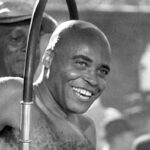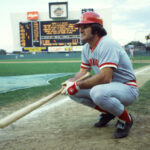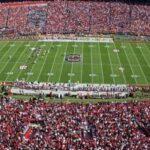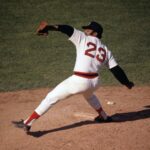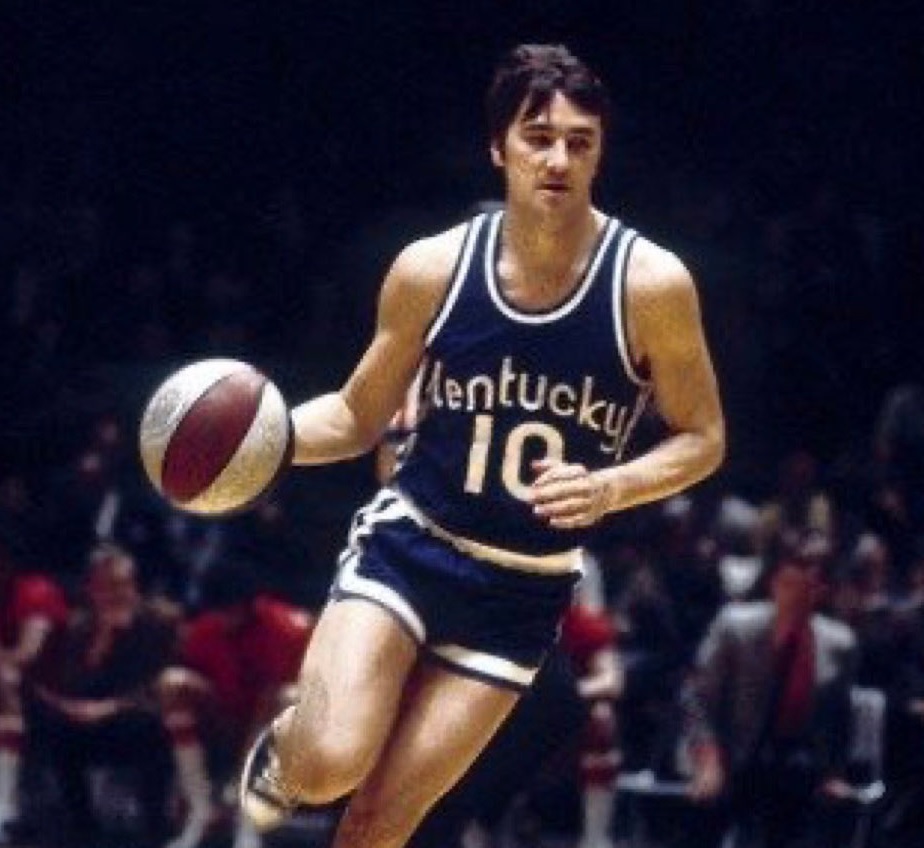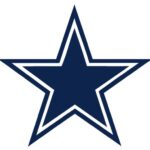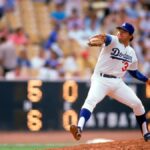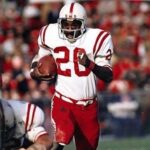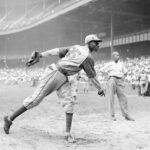Looking at the 2021 NFL Draft: Beware of the First Round Quarterback
Much like 2021, which is mysteriously now a quarter over, the 2021 NFL Draft seems to have snuck up out of nowhere to suddenly be upon us.
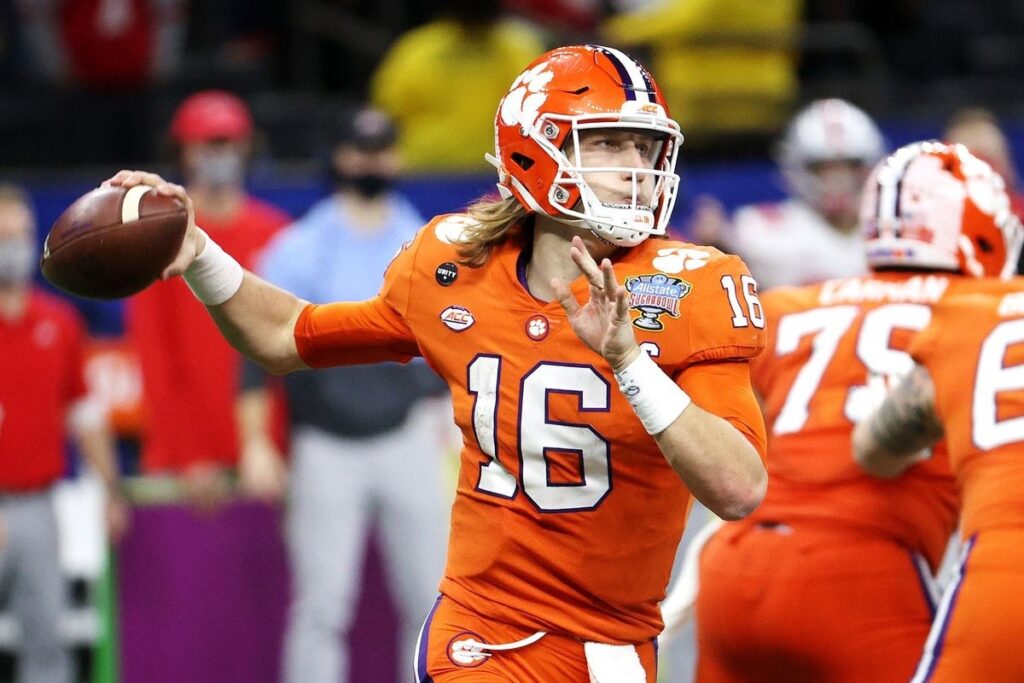
Perhaps because there was no NFL Combine in February and because other sports including basketball, baseball and hockey are all back in full swing at the college and pro levels, there doesn’t seem to have been quite as much pre-draft fanfare this year.
Sure, Mel Kiper, Jr. and the many other NFL Draft “experts” have been regularly updating their “draft boards”, but unlike last year where the NFL Draft was the only thing remotely related to sports that happened between mid-March and July, this year the attention of the country is not solely on the draft.
That being said, the NFL Draft usually signals the start of the frenzied NFL year. The 2021 schedule, which will include 17 games for the first time ever, will be announced just a few days after the draft. Though the players and union are trying to minimize the amount of structured off-season work for the players (an action that has been very evident on the field in recent years), there will also be some preseason camps between now and the end of July.
Unlike last year when Roger Goodell hosted the draft from his basement and we were treated to home cameras showing dogs, kids and family celebrations, Goodell and some of the players and team personnel will be together in-person in Cleveland for the draft. So, expect a hybrid event where there will be some of the hugging and celebrating we are used to be seeing at the draft mixed with some family celebrations and at-home coaches.
Looking at the draft itself, we have known for nearly two years that Trevor Lawrence from Clemson would be the first pick in the 2021 draft. Though the hiring of Urban Meyer as the new coach of the Jacksonville Jaguars created some discussion about whether he would prefer Ohio State product Justin Fields, it still appears inevitable that Lawrence’s name will be called first this year.
What is expected to follow that announcement is a string of quarterback choices that are the perfect personification of how the draft and the perception of the quarterback position has changed over the past couple decades.
Finding the next “franchise quarterback” has become such an obsession that we now annually can expect several teams to “take a flyer” on a quarterback who likely isn’t one of the top 20 or 30 players in the draft, but because he is a quarterback is pushed high up the draft boards.
In the first 20 years after the NFL-AFL combined to have one draft in 1967, a total of four quarterbacks (Terry Bradshaw in 1970, Jim Plunkett in 1975, Steve Bartkowski in 1975 and John Elway in 1983) were selected with the first pick in the NFL Draft. In the 20 most recent drafts prior to this year (2001-2020), 15 quarterbacks were chosen with the first pick. In addition, the number of quarterbacks chosen in the first round has nearly doubled from the 1970s to the 2010s. Below is the breakdown of quarterbacks chosen in the first round by decade:
1970s: 16
1980s: 18
1990s: 20
2000s: 26
2010s: 30
2020s: 4 (in one draft)
Not surprisingly, with the increase in number of quarterbacks chosen early in the draft, the number of “busts” has increased. Of the 16 quarterbacks chosen in the first round in the 1970s, 12 stayed with their initial team for at least five seasons and had solid professional careers. Of the 19 quarterbacks chosen in the first round between 2010 and 2016, not a single one is still with the team for which he was drafted and many are out of the league or serving as journeymen backups. In fact, only four of those 19 are still regular NFL starters.
What has made the rush to find a quarterback worse is that not only are teams choosing quarterbacks who would have been lower round selections in a different era, but in many cases they are giving up additional assets to jump up in the draft to select the quarterback.
In 2018, the New York Jets traded their first round pick (6th overall) along with two second rounds selections (37th and 49th) and a second round pick in the 2019 draft to Indianapolis so they could move up to the third pick and select quarterback Sam Darnold.
Now, after just three seasons, the Jets have decided Darnold was not the answer and recently traded him to the Carolina Panthers. They have the second pick in the 2021 draft and are again expected to choose a quarterback. Both Mel Kiper, Jr. and Todd McShay expect Zach Wilson from BYU to be chosen by the Jets.
In that same draft, the Arizona Cardinals traded their first, third and fifth round selections to move up from 15th to 10th in the first round to select quarterback Josh Rosen from UCLA. Rosen was 3-10 as a starter for the Cardinals as a rookie with 11 touchdown passes and 14 interceptions. Though his performance could be considered average for a rookie on a developing team, the Cardinals quickly decided he was not their long-term answer and traded him to Miami (for a second and fifth round pick) after selecting Kyler Murray with the first pick in the 2019 draft.
The San Francisco 49ers have already made a move to the third spot in the upcoming draft and are expected to draft a quarterback even though their roster already includes a quarterback (Jimmy Garoppolo) who they acquired in 2017 for a second round draft pick and who led them to the Super Bowl in 2019. Kiper predicts that the 49ers will select Mac Jones from Alabama while McShay is predicting Trey Lance from North Dakota State will be heading to San Francisco.
Kiper has five quarterbacks being selected in the first nine picks while McShay expects five quarterbacks to be chosen in the first 15 picks. However, while Kiper expects five quarterbacks to be chosen in the top 10, only three quarterbacks are in the top 10 of his ranking of the top overall prospects.
What makes this rush to the quarterback a little counter-intuitive is that it often means teams are in the perpetual cycle of trying to find their franchise quarterback and thus missing out on selecting other potential game-changing players.
In his overall rankings, Kiper has Florida tight end Kyle Pitts rated second, Alabama wide receiver DeVonta Smith third and LSU receiver Ja’Marr Chase fourth. All three are better than any receiver that Darnold had to throw to on the Jets last season.
However, because the Jets chose to trade Darnold and look for another quarterback, they will not be able to secure any of the three. Instead, they will be back at square one with nurturing a young quarterback and not having receiver weapons for him to connect with.
In reality, the teams that are able to use the draft most efficiently are the ones who are already fortunate to have a solid starting quarterback and can instead use the draft to address other weapons. For many years, that was part of the success of the New England Patriots as they were set with Tom Brady as quarterback and would move around the draft to find the best talent for the value.
Once the draft is over on Saturday, we will see grades from the many experts, but the reality is that it will be three to five years before you can really evaluate which teams made the best decisions during the 2021 NFL Draft.

